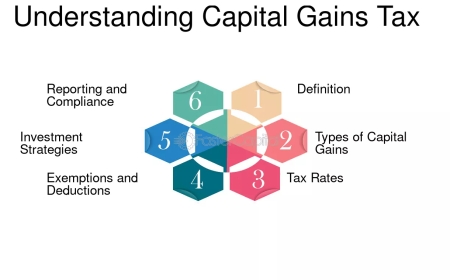Best Practices for Managing Business Cash Flow

Managing business cash flow is a critical aspect of maintaining financial stability and achieving long-term success. Cash flow refers to the movement of money into or out of a business, and it is essential to ensure that a company has sufficient liquidity to meet its financial obligations. In this article, we will discuss the best practices for managing business cash flow, including cash flow forecasting, managing accounts receivable and payable, and maintaining a cash reserve.
One of the most effective ways to manage business cash flow is through cash flow forecasting. This involves predicting future cash inflows and outflows to identify potential cash shortfalls or surpluses. By having a clear understanding of future cash flows, businesses can make informed decisions about investments, funding, and other financial matters. To create a cash flow forecast, businesses should gather historical financial data, identify trends and patterns, and use this information to predict future cash flows.
Managing accounts receivable and payable is another crucial aspect of cash flow management. Accounts receivable refers to the amount of money owed to a business by its customers, while accounts payable refers to the amount of money a business owes to its suppliers. To manage accounts receivable effectively, businesses should implement a robust invoicing system, offer incentives for early payment, and follow up with customers who are late with their payments. To manage accounts payable effectively, businesses should negotiate favorable payment terms with suppliers, take advantage of early payment discounts, and prioritize payments to avoid late fees.
Maintaining a cash reserve is also essential for managing business cash flow. A cash reserve is a pool of funds set aside to cover unexpected expenses or financial shortfalls. By having a cash reserve, businesses can avoid going into debt or having to liquidate assets to meet financial obligations. To maintain a cash reserve, businesses should allocate a portion of their profits to a separate savings account or investment vehicle.
In addition to these best practices, businesses can also use various tools and techniques to manage their cash flow. For example, businesses can use cash flow management software to track and analyze their cash flows, identify trends and patterns, and make informed decisions about future financial matters. Businesses can also use cash flow financing options, such as invoice financing or lines of credit, to manage cash flow shortfalls or surpluses.
To further illustrate the importance of effective cash flow management, let's consider a few examples. For instance, a business that fails to manage its accounts receivable effectively may experience a cash flow shortfall, which can lead to financial difficulties or even bankruptcy. On the other hand, a business that maintains a robust cash flow forecasting system and manages its accounts payable effectively may be able to take advantage of new investment opportunities or weather financial storms.
In conclusion, managing business cash flow is a critical aspect of maintaining financial stability and achieving long-term success. By implementing best practices such as cash flow forecasting, managing accounts receivable and payable, and maintaining a cash reserve, businesses can ensure that they have sufficient liquidity to meet their financial obligations. Additionally, by using various tools and techniques, such as cash flow management software and cash flow financing options, businesses can further optimize their cash flow management and achieve their financial goals.
As we have discussed, effective cash flow management is crucial for businesses to maintain financial stability and achieve long-term success. By following the best practices outlined in this article, businesses can ensure that they are well-equipped to manage their cash flow and achieve their financial objectives. Whether you are a small business owner or a financial manager at a large corporation, understanding the importance of cash flow management and implementing effective strategies is essential for driving business growth and success.
Furthermore, it is essential to regularly review and update cash flow forecasts to ensure that they remain accurate and relevant. This involves continually monitoring cash inflows and outflows, identifying trends and patterns, and making adjustments to the forecast as necessary. By doing so, businesses can stay on top of their cash flow and make informed decisions about future financial matters.
Another key aspect of cash flow management is managing cash inflows. This involves implementing strategies to accelerate cash receipts, such as offering discounts for early payment or using electronic payment systems. By accelerating cash inflows, businesses can improve their cash flow and reduce the risk of cash flow shortfalls.
In addition to managing cash inflows, businesses should also focus on managing cash outflows. This involves implementing strategies to reduce cash outflows, such as negotiating favorable payment terms with suppliers or reducing unnecessary expenses. By reducing cash outflows, businesses can improve their cash flow and increase their financial stability.
To achieve long-term success, businesses must prioritize cash flow management and implement effective strategies to manage their cash flow. This involves continually monitoring cash inflows and outflows, identifying trends and patterns, and making informed decisions about future financial matters. By doing so, businesses can ensure that they have sufficient liquidity to meet their financial obligations and achieve their financial goals.
As the business landscape continues to evolve, it is essential for businesses to stay ahead of the curve when it comes to cash flow management. This involves continually monitoring industry trends and best practices, and implementing new strategies and technologies to optimize cash flow management. By doing so, businesses can stay competitive, drive growth, and achieve long-term success.
In summary, effective cash flow management is crucial for businesses to maintain financial stability and achieve long-term success. By implementing best practices such as cash flow forecasting, managing accounts receivable and payable, and maintaining a cash reserve, businesses can ensure that they have sufficient liquidity to meet their financial obligations. Additionally, by using various tools and techniques, such as cash flow management software and cash flow financing options, businesses can further optimize their cash flow management and achieve their financial goals.
Effective cash flow management is not a one-time task, but rather an ongoing process that requires continual monitoring and adjustments. By prioritizing cash flow management and implementing effective strategies, businesses can ensure that they are well-equipped to manage their cash flow and achieve their financial objectives. As we have discussed, this involves implementing best practices such as cash flow forecasting, managing accounts receivable and payable, and maintaining a cash reserve, as well as using various tools and techniques to optimize cash flow management.


















